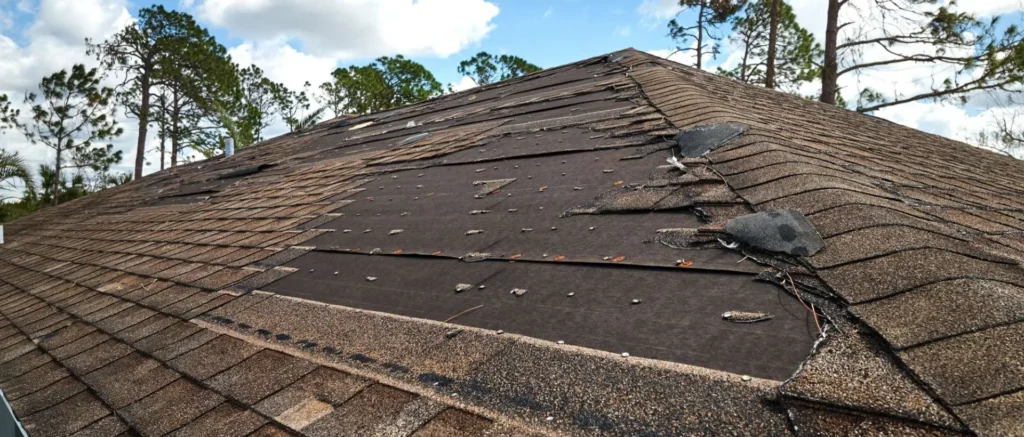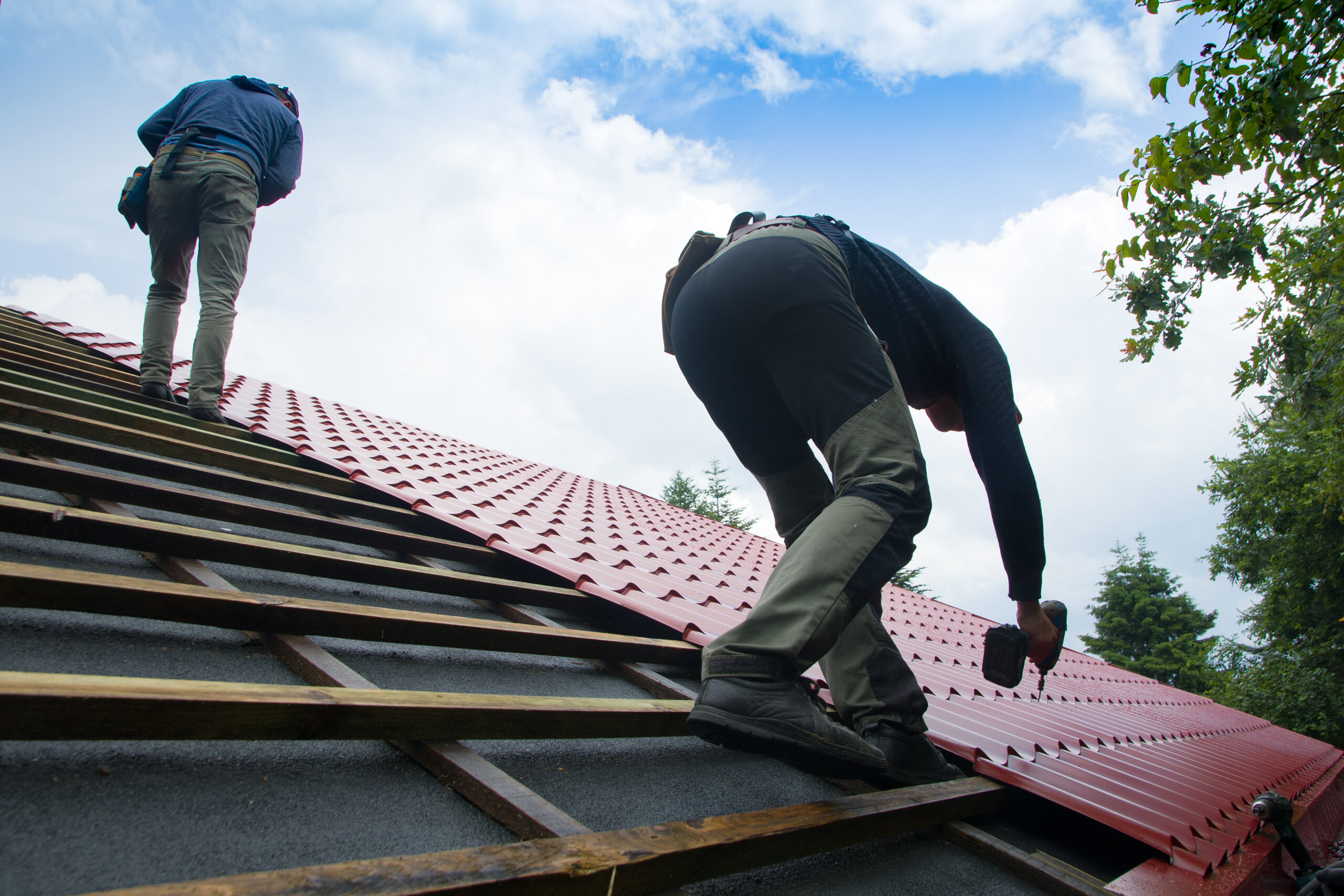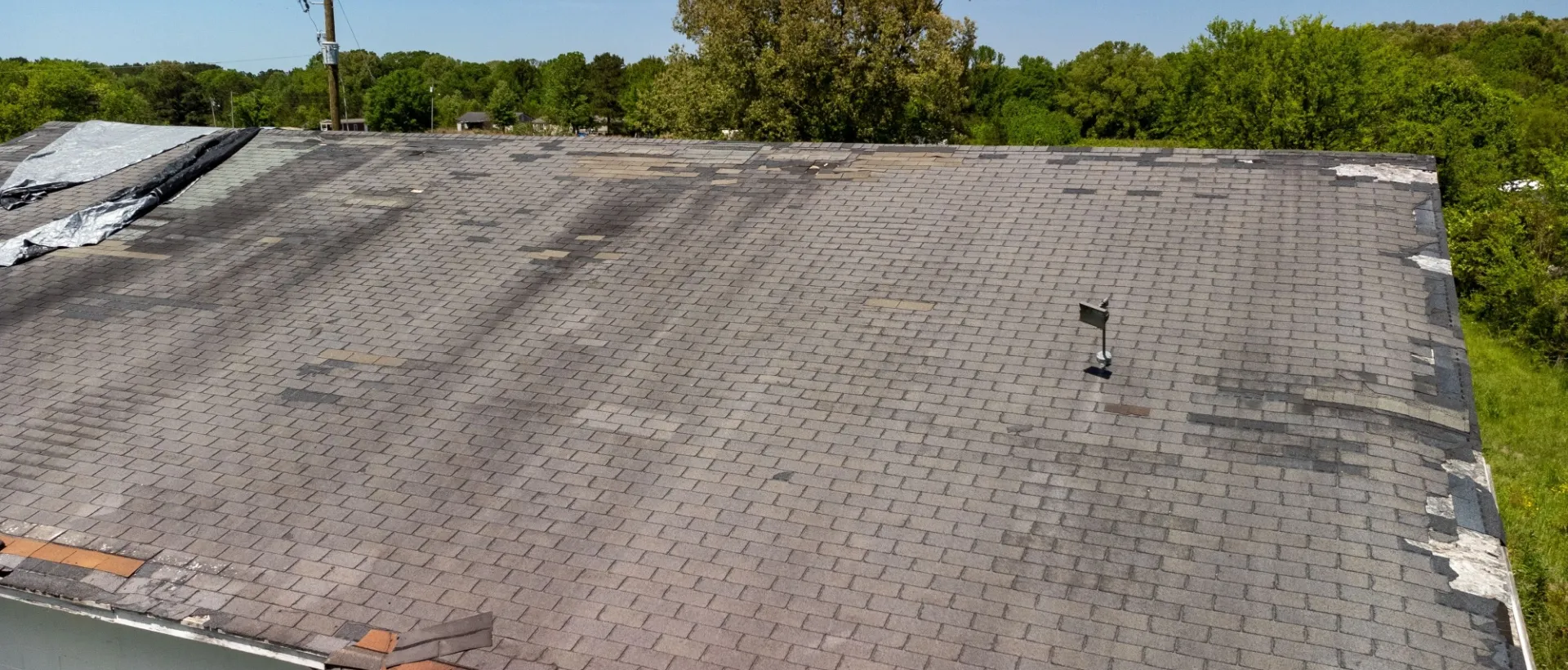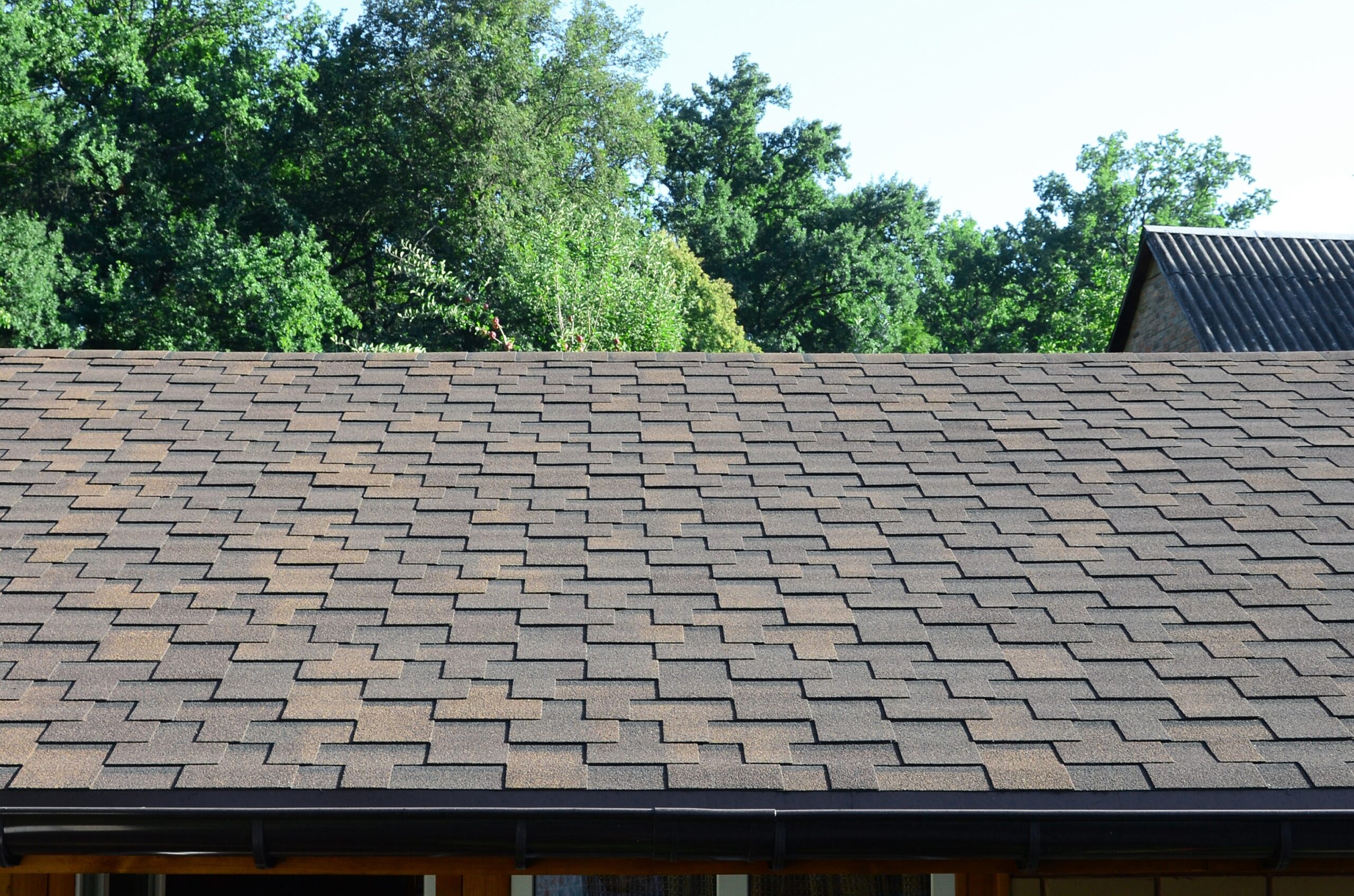Licensed Roofing Contractors Guide 2025 | Hire Verified Pros
Hiring licensed roofing contractors protects your home investment and ensures code compliance. Licensed professionals carry proper insurance, follow safety protocols, and guarantee workmanship that meets state building standards. According to the National Roofing Contractors Association, homeowners who hire licensed contractors reduce project failure rates by 73% compared to unlicensed alternatives.
This guide walks you through verification methods, cost comparisons, and red flags that signal contractor fraud. You’ll learn exactly what credentials matter, how to compare quotes effectively, and what guarantees licensed professionals provide. Whether you need roof repair, replacement, or installation services, understanding licensing requirements helps you make informed decisions that protect your property and budget.
Table of Contents
- Why Hiring Licensed Roofing Contractors Matters
- How to Verify a Roofer’s License and Insurance
- Top Qualities of a Professional Roofing Company
- Common Scams and Unlicensed Contractor Risks
- What to Expect from a Licensed Roofing Contractor
- How to Compare Roofing Quotes and Warranties
- FAQ
- Conclusion
Why Hiring Licensed Roofing Contractors Matters
Licensed roofing contractors operate under state regulations that mandate insurance coverage, safety training, and quality standards. These requirements protect homeowners from liability and ensure projects meet local building codes. Unlicensed roofers may offer lower prices, but they frequently disappear after deposits, deliver substandard work, or leave homeowners liable for injuries that occur on their property.
Licensed contractors carry liability insurance, workers’ compensation, and undergo state-approved training. They guarantee code compliance, provide written warranties, and remain accountable through regulatory oversight that protects your investment.
Required Licenses and Certifications by State
New York requires roofing contractors to hold a Home Improvement Contractor license for projects exceeding $200. Suffolk County adds local permit requirements that mandate inspections at multiple project stages. The New York Department of State maintains a searchable database where homeowners verify active licenses before signing contracts.
GAF certification adds another layer of credibility. GAF Master Elite contractors represent the top 3% of roofing companies nationwide and must maintain strict quality standards. Tom Jannace Roofing holds GAF certification and has served Suffolk County since 1990, combining regulatory compliance with manufacturer-backed expertise.
States like California, Florida, and Texas enforce similar licensing structures. A 2024 HomeAdvisor study found that 89% of homeowners who verified licenses before hiring reported satisfaction with completed projects, compared to just 34% who skipped verification steps.
Roofing Company Safety and Training Standards
OSHA regulations require fall protection systems, safety harnesses, and regular training updates for roofing crews. Licensed companies invest thousands annually in equipment and certification programs. The Bureau of Labor Statistics reports that roofing remains one of the most hazardous construction trades, with proper safety protocols reducing injury rates by 68% according to 2023 data.
Licensed contractors maintain workers’ compensation insurance that covers medical expenses and lost wages if accidents occur. Homeowners who hire unlicensed roofers may face personal liability for injuries, potentially costing tens of thousands in legal fees and medical bills.
How to Verify a Roofer’s License and Insurance
Verification takes less than 10 minutes and prevents costly mistakes. Start with your state’s contractor licensing board website, where you can search by company name or license number. The database shows license status, expiration dates, and any disciplinary actions filed against the contractor.
Check your state licensing board’s online database using the contractor’s name or license number. Request certificate copies for general liability and workers’ compensation insurance, then call insurers directly to confirm active coverage before signing any contract.
Expert Tip: Verifying a Roofer’s State License Number Online
New York homeowners visit dos.ny.gov and navigate to the Division of Consumer Protection. Enter the contractor’s business name in the search field. Active licenses display immediately with registration dates and expiration information. Screenshot results for your records.
Request insurance certificates directly from the contractor. Legitimate companies provide documents within 24 hours. Call the insurance company listed on certificates using their official number, not one printed on the document. Confirm the policy remains active and covers the dates of your planned project.
Better Business Bureau ratings offer additional insight. Tom Jannace Roofing maintains an A+ rating, demonstrating consistent customer satisfaction and ethical business practices. Check reviews on Google, Yelp, and Angi to identify patterns in service quality and responsiveness.
Cost Comparison: Licensed vs. Unlicensed Roofing
Licensed contractors charge 15% to 30% more than unlicensed alternatives, reflecting insurance costs, permit fees, and quality materials. A typical asphalt shingle replacement in Suffolk County ranges from $8,500 to $15,000 for licensed professionals. Unlicensed roofers may quote $6,000 to $9,000 for the same project.
The price difference becomes irrelevant when unlicensed work fails. A 2024 Consumer Reports investigation found that 61% of homeowners who hired unlicensed contractors faced additional repairs within three years, spending an average of $12,400 fixing substandard work. Licensed contractors provide warranties that cover these failures, eliminating unexpected expenses.
Top Qualities of a Professional Roofing Company
Professional roofing companies maintain physical business locations, employ trained crews, and carry comprehensive insurance. They provide detailed written estimates, communicate project timelines clearly, and stand behind completed work with transferable warranties. These qualities separate established businesses from fly-by-night operations.
Professional roofers offer written contracts with payment schedules, maintain permanent offices with verifiable addresses, employ background-checked crews, provide manufacturer certifications like GAF Master Elite status, and deliver warranties covering both labor and materials for years.
Example: Suffolk County, NY Roofing Permit Process
Suffolk County requires building permits for all roof replacements and structural repairs. The process begins with submitting plans to the local building department, paying permit fees averaging $300 to $500, and scheduling inspections at framing and completion stages. Licensed contractors handle permits as part of their service.
Tom Jannace Roofing manages the entire permit process for clients, coordinating with Suffolk County inspectors and ensuring code compliance at every stage. This eliminates homeowner stress and prevents project delays caused by permit violations. Unlicensed contractors skip permits entirely, leaving homeowners liable for fines reaching $5,000 and forcing expensive corrective work.
Professional companies also maintain relationships with local building departments. These connections facilitate faster approvals and smoother inspections, keeping projects on schedule. A licensed contractor’s reputation depends on consistent code compliance and inspector cooperation.
Checklist: Questions to Ask Before Signing a Roofing Contract
Use this checklist during contractor interviews. Request answers in writing and compare responses across multiple companies before making your decision.
✓ What is your license number and when does it expire?
✓ Can you provide current insurance certificates for general liability and workers’ compensation?
✓ Who will supervise my project and how can I reach them?
✓ What brands of materials do you install and what warranties do they carry?
✓ How long will the project take and what happens if weather delays work?
✓ Do you handle all permits and inspections?
✓ What does your workmanship warranty cover and for how long?
✓ Can you provide three local references from projects completed in the past year?
✓ What is your payment schedule and what forms of payment do you accept?
✓ How do you protect my property during installation?
Contractors who hesitate or refuse to answer these questions lack transparency. Professional companies like Tom Jannace Roofing address every concern thoroughly and provide documentation to support their claims.
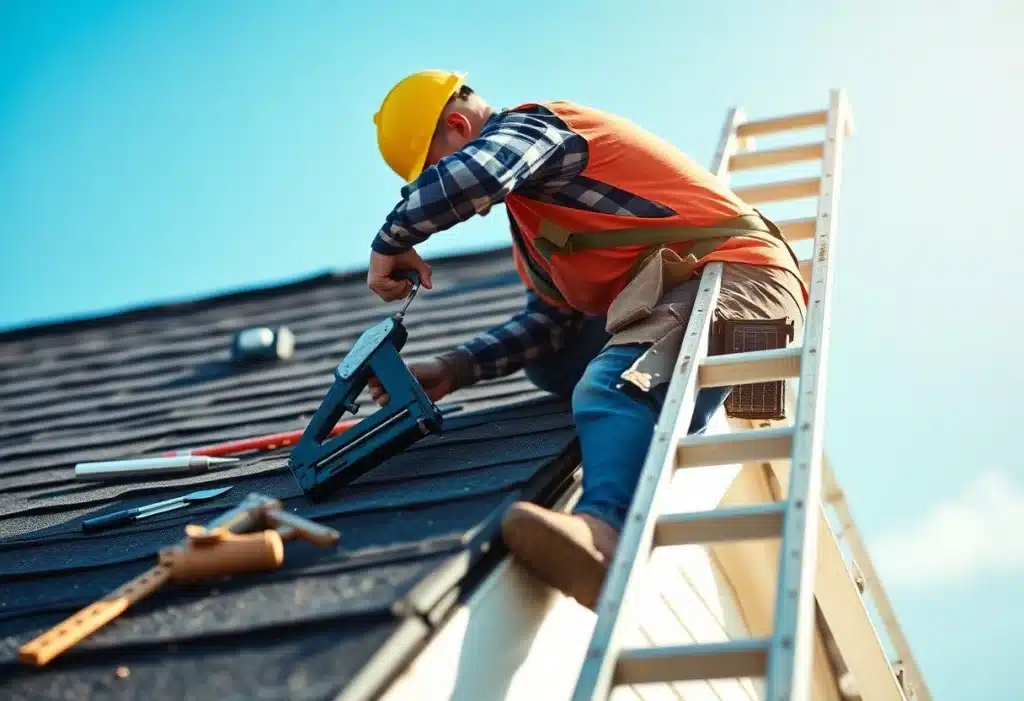
Common Scams and Unlicensed Contractor Risks
Roofing scams cost American homeowners $1.3 billion annually according to the Federal Trade Commission’s 2023 Consumer Sentinel Report. Storm chasers follow severe weather, pressuring homeowners into immediate decisions with scare tactics. They collect large deposits then vanish without starting work. Door-to-door solicitors claiming leftover materials from nearby jobs represent another common fraud.
Red flags include requests for full payment upfront, pressure to sign immediately, no physical business address, prices significantly below market rates, offers to waive insurance deductibles, and refusal to provide written contracts or verification documents.
Contractor Scams 2025: What to Watch For
The National Association of State Contractors Licensing Agencies identified five prevalent scams in their 2024 annual report. Cash-only demands allow contractors to avoid tax obligations and eliminate paper trails. Offers to pay insurance deductibles violate insurance contracts and constitute fraud in most states.
Bait-and-switch tactics lure homeowners with low bids, then claim additional damage requires expensive upgrades mid-project. Material substitution involves installing cheaper products than those specified in contracts. Mechanics’ lien threats pressure homeowners into paying for disputed work, even when subcontractors deserve payment.
Verify business legitimacy by visiting physical offices before signing contracts. Google Street View reveals whether listed addresses actually exist. Licensed contractors maintain established locations with signage, equipment, and staff. Tom Jannace Roofing operates from 18 Media Lane in Stony Brook, welcoming clients for consultations and estimates.
Financial and Legal Consequences of Hiring Unlicensed Roofers
Homeowners insurance may deny claims for damage caused by unlicensed contractors. Policies typically require licensed professionals for major repairs and improvements. Future home sales become complicated when permit records show missing documentation for roof replacements, potentially reducing property values by $10,000 to $25,000.
Liability extends to injuries that occur during unlicensed projects. Without workers’ compensation coverage, injured workers sue homeowners directly. Legal judgments frequently exceed $100,000 for serious injuries. Licensed contractors carry insurance that protects homeowners from these scenarios, transferring risk to commercial policies designed for construction hazards.
What to Expect from a Licensed Roofing Contractor
Licensed contractors follow structured processes that ensure quality and compliance. Initial consultations include thorough roof inspections using drones or ladders to assess current conditions. Contractors photograph damage, measure roof dimensions, and calculate material requirements. Written estimates detail every cost component, from tear-off expenses to disposal fees.
Professional contractors conduct free inspections, provide itemized written estimates, schedule work around your availability, secure necessary permits, deliver daily progress updates, complete cleanup thoroughly, arrange final inspections, and follow up to ensure your satisfaction.
Project Timeline and Communication Standards
Typical roof replacement projects span three to seven days depending on size and complexity. Licensed contractors establish clear timelines during initial consultations and communicate schedule changes promptly. They arrive when promised, work consistent hours, and maintain clean job sites daily.
Tom Jannace Roofing assigns project supervisors who serve as single points of contact throughout installations. Supervisors answer questions, address concerns, and provide updates without requiring homeowners to track down different crew members. This accountability distinguishes professional operations from disorganized alternatives.
Weather delays affect roofing schedules unpredictably. Licensed contractors monitor forecasts closely and reschedule appropriately rather than rushing work during unsuitable conditions. Contracts should specify how delays impact timelines and whether extended projects incur additional costs. Transparent communication prevents misunderstandings and maintains positive working relationships.
How to Compare Roofing Quotes and Warranties
Collect at least three written estimates from licensed contractors before making decisions. Compare apples to apples by ensuring quotes include identical scopes of work. Break down costs by category: materials, labor, permits, disposal, and warranties. Total price matters less than value delivered and protections provided.
Quality quotes itemize all costs separately, specify material brands and grades, outline warranty terms clearly, include permit fees, detail payment schedules, and provide references. Compare warranty coverage duration, what circumstances void protection, and whether coverage transfers to future homeowners.
Local Roofing Estimates: What Should Be Included
Complete estimates list specific shingle manufacturers and product lines like GAF Timberline HDZ or Owens Corning Duration series. They specify underlayment types, ventilation solutions, and flashing materials. Labor costs should separate tear-off, installation, and cleanup. Disposal fees vary by location, averaging $300 to $800 in Suffolk County.
Warranty sections distinguish between manufacturer coverage and contractor workmanship guarantees. Premium shingles like GAF’s Lifetime series include 50-year material warranties. GAF Master Elite contractors like Tom Jannace Roofing offer extended workmanship warranties reaching 25 years, far exceeding standard 1-year guarantees most companies provide.
Payment schedules protect both parties. Avoid contractors demanding more than 10% deposits. Reasonable structures spread payments across project milestones: 10% at signing, 40% when materials arrive, 40% at substantial completion, and 10% after final inspection. This arrangement ensures contractors remain motivated to finish quality work.
Understanding Roofing Warranties and Guarantees
Manufacturer warranties cover material defects but exclude installation errors. They require proper installation by certified contractors. GAF’s Golden Pledge warranty combines 50-year material coverage with 25-year workmanship protection, but only GAF Master Elite contractors can offer this comprehensive package.
Workmanship warranties protect against installation failures like leaks from improper flashing or inadequate ventilation. Duration varies dramatically. Budget contractors offer one year while established professionals provide 10 to 25 years. Longer warranties signal confidence in work quality and company longevity.
Transferable warranties add resale value. When homeowners sell properties, new owners receive remaining warranty coverage. This feature appeals to buyers and justifies premium pricing during negotiations. Confirm transferability terms during contractor selection and ensure documentation transfers at closing.
FAQ
How do I find licensed roofing contractors near me?
Search your state’s contractor licensing database by location, verify Better Business Bureau ratings, and request referrals from neighbors who completed recent projects. Check online reviews on Google and Angi, focusing on patterns rather than individual complaints. Contact multiple contractors for free estimates to compare credentials and pricing.
What licenses should roofing companies have?
Requirements vary by state. New York mandates Home Improvement Contractor licenses for projects exceeding $200. Verify active licenses through state databases, confirm general liability and workers’ compensation insurance, and check for manufacturer certifications like GAF Master Elite status that demonstrate advanced training and quality commitment.
How much do licensed roofers charge compared to unlicensed ones?
Licensed contractors charge 15% to 30% more, reflecting insurance costs, permit fees, and quality materials. However, unlicensed work frequently fails within three years, requiring repairs averaging $12,400 according to 2024 Consumer Reports data. Licensed contractors provide warranties that eliminate these unexpected costs.
Can unlicensed contractors legally do roofing work?
Laws vary by state and project size. Most jurisdictions require licenses for projects exceeding specific dollar thresholds. Hiring unlicensed contractors violates building codes, voids homeowners insurance coverage, creates personal liability for worker injuries, and complicates future home sales when permit records show missing documentation.
Conclusion
Licensed roofing contractors protect your investment through insurance coverage, regulatory accountability, and quality guarantees that unlicensed alternatives cannot match. Verification takes minutes using state databases and insurance confirmations. The modest price premium disappears when you avoid the $12,400 average cost of fixing substandard work.
Professional companies like Tom Jannace Roofing combine licensing compliance with manufacturer certifications, creating comprehensive protection for your project. Request written estimates from multiple licensed contractors, compare warranty terms carefully, and verify credentials before signing contracts. Your roof represents decades of protection when installed correctly by qualified professionals.Get your free estimate from Tom Jannace Roofing Inc., a GAF-certified, licensed roofing contractor serving Suffolk County since 1990. Call (631) 751-4734 or visit our Stony Brook office for a no-obligation consultation.


